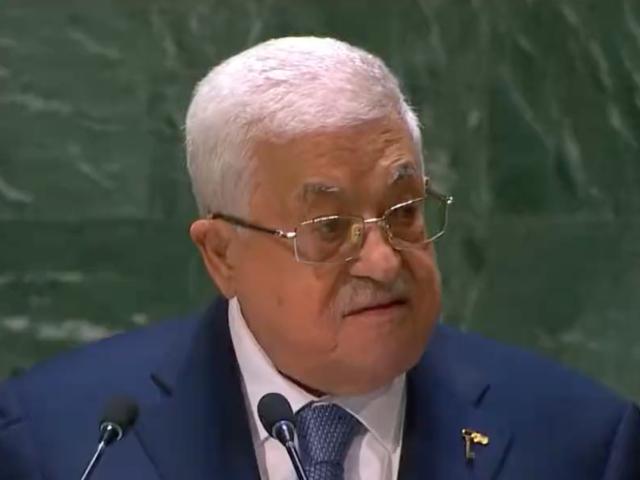Western officials have sounded the alarm over a looming "economic catastrophe" in Judea & Samaria if Israel fails to renew a crucial waiver enabling Israeli banks to maintain relationships with their Palestinian counterparts. This waiver, which is set to expire on July 1, facilitates the transfer of payments for essential services and salaries tied to the Palestinian Authority (PA), and ensures the importation of necessities such as food, water, and electricity into the occupied territories.
Without this waiver, Israeli banks would halt transactions with Palestinian financial institutions, effectively leading to a gradual shutdown of the Palestinian economy, according to three Western officials. A U.S. official emphasized, "Threatening people's access to food, electricity, and water, particularly at this moment in the West Bank (Judea & Samaria), is inadvisable."
The official further warned that failing to renew the waiver would harm not only Palestinian interests but also Israel's security and regional stability. Washington is spearheading efforts to ensure the waiver's renewal, enlisting allies to pressure Prime Minister Benjamin Netanyahu's government, with the UK also expressing concern.
#BREAKING: ISRAEL MAY ISOLATE PALESTINIAN BANKS NEXT WEEK
— Genius Bot X (@GeniusBotX) March 31, 2024
From global finance next week. Israeli Finance Minister's decision threatens to sever Palestinian banks from Israeli and international systems, pending a cabinet review led by PM Netanyahu.
With the Palestinian economy… pic.twitter.com/MXoBWzkMUy
The issue is slated for discussion at the upcoming G7 finance ministers meeting in Italy. Despite the Palestinian economy engaging in multi-currency trade, the Israeli shekel remains its official currency, necessitating interaction with the Bank of Israel and Israeli banks.
Annually, approximately $8 billion in trade between Israel and Judea & Samaria relies on these channels, including $2.3 billion for food, $540 million for electricity, and $145 million for water and sewage services. The waiver's lapse would significantly impair the PA’s functionality and cripple economic activities in Judea & Samaria, a region Palestinians aspire to establish as the heart of their future state, but which has been under Israeli occupation since 1967.
Without the waiver, import-export operations would be severely affected, and Palestinian tax funds collected in Israel might be frozen. Israeli companies with business ties to the PA would face obstacles in depositing Palestinian cheques or receiving payments from Palestinian banks, and Palestinian workers in Israel could no longer receive electronic bank transfers.
One Western official cautioned, "If the waiver is not renewed, it will precipitate a serious crisis, halting Palestinian economic activity in Judea & Samaria." Previously, the waiver was renewed annually without issue, an arrangement dating back to 2016, when U.S. Treasury officials assured Israel that its banks would not face allegations of terrorist financing for dealings with Palestinian entities.
Israel to freeze the banking system of occupied Palestine?
— Arman Ali Verdi (@Armanali225) March 29, 2024
According to a report by Haaretz, Bezalel Smotrich, Israel’s finance minister, has decided to cut off Palestinian banks from both Israeli and international financial networks. pic.twitter.com/DK9h1TXahg
However, this year, Israeli Finance Minister Bezalel Smotrich issued only a three-month extension of the previous waiver, set to expire on April 1, instead of the customary year-long renewal. Smotrich has signaled he may not renew it again, citing an incomplete audit of the Palestinian banking system and insufficient efforts by the PA to mitigate risks of terrorist financing and money laundering.
An Israeli official justified the limited extension by highlighting the need for a national risk assessment on terrorism financing and money laundering from the PA. The official added that Israel remains "deeply concerned" about these risks.
Palestinian officials stated that the audit had been delayed due to security concerns, but insisted they had nothing to hide. They acknowledged that while work on e-payments had commenced, limited internet access in Judea & Samaria and Gaza complicates digitization efforts.
The issue has created divisions within Netanyahu's cabinet, reflecting broader tensions between those seeking to support the PA and religious nationalists like Smotrich, who view the PA as an obstacle to their annexation ambitions.
Western officials warn of ‘catastrophe’ if Israel cuts off Palestinian banks https://t.co/f0O066NXrq
— Finance News (@ftfinancenews) May 22, 2024
A Western official criticized the renewal delay as "blatantly political," masking it as concerns over terrorist financing. U.S. officials have noted that Palestinian banks have stringent safeguards against terrorist financing and that non-renewal of the waiver would push Palestinian economic activities into informal channels, increasing risks.
U.S. Treasury Secretary Janet Yellen has expressed concern to Israeli officials, offering to collaborate with Palestinian financial institutions to address Israeli concerns. The waiver's renewal has been delayed in the past due to Israeli banks' apprehensions about dealing with Palestinian lenders.
An investigation in France reveals: Palestinian terrorist organizations, including the Hamas organization, stole 66 million euros from banks in Gaza last month. pic.twitter.com/vFpwpjKlHI
— Israel Kicks A** (@Israelkicksass) May 4, 2024
Palestinian banks, regulated by the Palestine Monetary Authority (PMA), have robust anti-money laundering and counter-terrorism financing measures in place. Daniel Glaser, a former U.S. Treasury assistant secretary for terrorist financing, affirmed that Palestinian banks are well-regulated and resistant to Hamas's influence, despite not being perfect. He stressed that claims of their involvement in terrorist financing are dubious.


